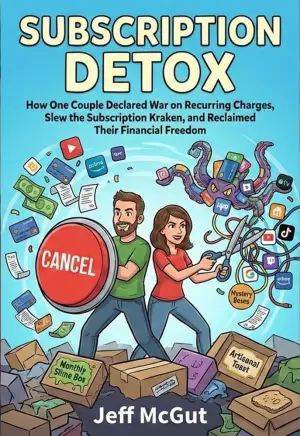I recently delved into A Mindfulness-Based Stress Reduction Workbook, and it has been quite the enlightening journey. As someone interested in mental wellness and practical self-help strategies, I was drawn to this book due to its reputation as a comprehensive guide to mindfulness-based stress reduction (MBSR). The appeal isn’t just its wide distribution and proven effectiveness; it promises a long-lasting impact on how we handle stress and anxiety.
The workbook is structured thoroughly, with 11 chapters carefully designed to pace the reader through various mindfulness exercises and meditations. One aspect that immediately stood out to me is its comprehensive nature; it provides both theoretical background and practical exercises that are easy to follow. The inclusion of an MP3 CD featuring guided meditations further enriches the experience, as noted by fellow readers like Sue Metzcar. Her sentiments echoed my thoughts—this book offered a "doable plan of action" in managing stress and really allowed me to engage with the material actively.
Another strong point of the book is its readability. Each chapter strikes a balance between being informative and easy to digest. I appreciated how it encouraged me to take notes and reflect on my journey into mindfulness, similar to what other reviewers have highlighted. This interactive approach fosters a sense of ownership over one’s learning process, and I found myself returning to previous exercises to deepen my understanding.
However, I acknowledge that not everything about the workbook resonates equally with all readers. For instance, some have noted that the first chapter can seem somewhat odd and may not fully connect with everyone’s existing knowledge. Like Dana Evans mentioned, my experience with the early chapters was a bit jarring because they led to familiar techniques that I unconsciously practiced. While I found the subsequent chapters much more beneficial, it’s something to consider for those beginning their mindfulness journey.
Moreover, while the book is rich with meditations and exercises, it may occasionally feel overwhelming if you’re new to the concept of mindfulness. Some readers might find the sheer volume of information slightly daunting at first—this was a common sentiment expressed in various reviews. Yet, the revised edition reportedly does a great job of breaking down these concepts into approachable pieces, a feature that I found confirmed through my reading.
The authors, Bob Stahl and Elisha Goldstein, have effectively integrated traditional thinking with modern therapeutic practices. Their expert guidance transitions seamlessly through multiple areas—stress management, anxiety relief, and even chronic pain reduction—showing how MBSR can be applied holistically in everyday life. As I proceeded through the book, I truly appreciated their strategic approach to eventually leading the reader toward a sustainable mindfulness practice.
In terms of drawbacks, the CD included with the book may not suit everyone’s tastes. Anecdotes from readers indicate that some individuals found the narration style a bit uninspiring or jarring during silent pauses. This wasn’t a critical issue for me, but I can see how personalized preferences in guided meditations can impact your overall experience.
To sum it all up, A Mindfulness-Based Stress Reduction Workbook is an exceedingly practical guide that delivers on its promise to help you effectively adopt mindfulness practices in your life. It offers valuable tools for anyone looking to better manage stress, whether they are seasoned mindfulness practitioners or complete beginners. The balance of scientific understanding and experiential exercises makes it a reliable resource for anyone interested in improving their mental wellness.
I wholeheartedly recommend this book to anyone looking to explore mindfulness further. If you’re searching for a structured yet flexible program that can help alleviate daily stressors while promoting self-awareness, this workbook is indeed a worthy investment. It has lived up to its description as a groundbreaking tool for personal growth, and I can’t help but feel it’s time well spent on one’s well-being.








